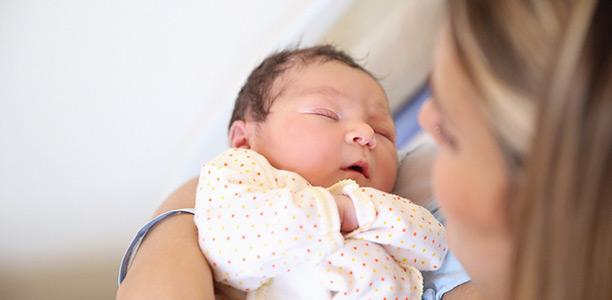Children with autism are more likely to show severe social symptoms if their mother had chronic asthma or allergies while pregnant, the University of Sydney’s Brain and Mind Centre revealed in Molecular Psychiatry.
The retrospective cohort study of 220 Australian children, conducted between 2011-2014, indicates that a “an immune-mediated subtype” of autism driven by the body’s inflammatory and immunological systems may be pivotal, according to the University of Sydney’s Professor Adam Guastella.
Autism Spectrum Disorder (ASD) is a set of neurodevelopmental disorders, characterised by impaired reciprocal interaction and communication skills, and restricted and repetitive behaviours and interests. It occurs in one in every 68 people around the world.
Maternal immune activation (MIA) has been highlighted as a factor that might increase the risk of ASD; however, this new study is believed to be the first to examine whether MIA is linked to poorer outcomes in children with ASD. MIA is defined as an active immune response during pregnancy that can be triggered by an external event such as infection or autoimmune disorders.
The mechanisms by which MIA increases the risk of ASD are largely unknown but research suggests that an immune-mediated subtype in ASD may be driven by changes in cytokine, chemokine or antibody levels in the mother and/or child.
The researchers say the identification of an immune system-mediated subtype in ASD driven by MIA and immune biomarkers would enable more streamlined diagnosis and management in clinical settings.
Preclinical animal models have shown that immune activation during pregnancy causes ASD-like phenotypes in offspring, which supports the MIA hypothesis.
Children recruited to the study were administered the Autism Diagnostic Observation Schedule-Generic (ADOS-G) that uses simple activities and questions designed to prompt and observe communication, social and stereotyped behaviours relevant to the diagnosis of ASD.
A primary caregiver also completed the Social Responsiveness Scale (SRS), a 65-item rating scale measuring social interaction, language and repetitive/restricted behaviours and interests in the child. The SRS provides a total score and individual scores on five subscales: awareness, cognition, communication, motivation and mannerisms.
A primary caregiver completed a family history questionnaire, which included a medical history including any diagnosed illnesses or chronic conditions.
Results of the study support the identification of an immune-mediated subtype of autism that could have both diagnostic and treatment implications.
Natalie Pollard said trying to understand why her eldest son, Ethan, 7, has autism was a “long journey”, but the findings were a positive step.
The University of Sydney academic from Dural doesn’t suffer from asthma and allergies, and her two younger sons do not have autism.
“I knew something wasn’t quite right early on, and his development was slower and he would scream for hours,” she said.
“As a mum, I think the findings are great, because we need more information out there and it could potentially help solve the puzzle of autism, which is multi-factorial.”
Results
- A history of allergies or asthma in the mother was associated with increased severity of social symptoms
- A history of autoimmune conditions in the mother was not associated with increased symptom severity
“Our results build on existing research by showing an associated between maternal immune activation caused by asthma and allergies and ASD symptom severity in children with ASD, said Shrujna Patel, a University of Sydney PhD candidate who led the study with colleagues at the Brain and Mind Centre, Children’s Hospital Westmead, Macquarie University and the Telethon Kids Institute.
“Children of mothers who reported a history of immune activation had significantly higher Social Responsiveness Scale total scores, suggesting they had more severe caregiver-reported deficits,” she said.
“Specifically, they had higher scores on cognition and mannerisms subscales, suggesting they had more difficulty understanding social situations and displayed more restricted behaviours or unusual interests.”
The researchers said the identification of an immune system-mediated subtype in ASD driven by MIA and immune biomarkers would enable more streamlined diagnosis and management in clinical settings.
The findings also support the investigation of biomarkers in this sub-group and present potential new targets for immune-modulating drug therapies.
(Source: University of Sydney, Molecular Psychiatry)










